Box Turtle Laying Eggs In Yard: What To Do To Save Them?
Are you faced with a situation where a box turtle has made a home for itself in your yard and even laid eggs? Are you wondering what you can do to save the eggs so they survive and hatch into little babies? If yes, this article will help you out.
Box turtles laying eggs in the yard isn’t an uncommon occurrence. If the turtle lays eggs in your yard, you should let them hatch on their own. Disturbing them may affect their health. However, if you think the eggs are in danger, you can move them to a safer place to increase their survival chances.
In this article, we’ll look at full details about box turtles laying eggs in your backyard. We’ll cover helpful tips like how to save the eggs, whether you should transfer them, how to take care of the hatchlings, and so much more.
What to do when a box turtle lays eggs in your yard?
Contents
When a box turtle lays eggs in your yard, you may want to protect them from predators and help them hatch into little adorable baby turtles. However, if this does not work for you, then you’d want to call animal control to come and get rid of them from your yard.
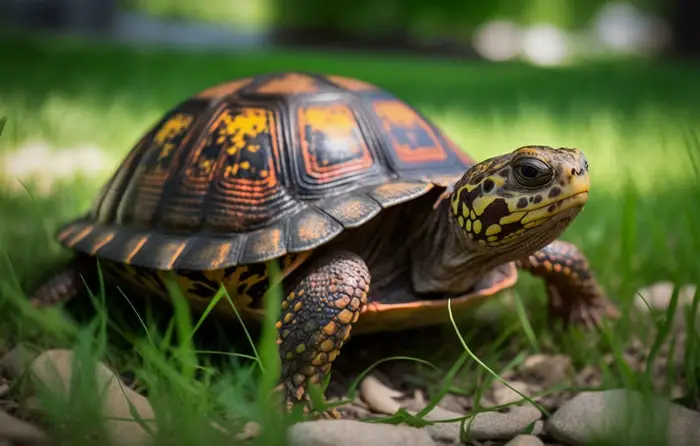
Assuming you go with the former option, then you may be asking yourself how you’d go about keeping the baby turtles safe from predators and other potential threats.
Here are steps to take care of box turtle eggs in your yard:
Step 1. Pinpoint the turtle’s nest
Ideally, you want to start by making sure that the eggs are indeed there. Box turtles usually dig many nests as they try to find a suitable nesting site. If they don’t get a suitable one on your lawn, they may as well move on to the next plot. Therefore, the first step is identifying if the nest has eggs.
Step 2. Decide whether to move them or not
Box turtles generally choose suitable nesting locations before laying eggs. However, if you think the eggs are unsafe in their current location, you can simply move them to a safer location. In this case, we advise you to move them in the same direction they face as disorienting them may affect their development. Alternatively, you can contact your local wildlife alert to help with the relocation process.
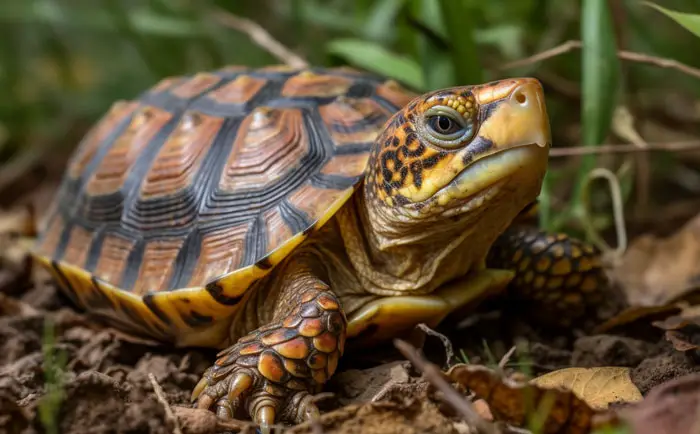
Step 3. Protecting the nest
Now that you know the precise nest location, you’ll need to protect it from various threats that may endanger its survival. You can do so by placing a small shelter over the nest to keep people from stepping on it or even mowers from grazing over it. The shelter should also keep away turtle egg predators like raccoons, coyotes, etc. The more vegetation you add to your lawn, the more you keep predators away from your garden.
Step 4. Be patient
Box turtle eggs usually take around 70 to 90 days to hatch. As such, you want to be patient with the whole process and avoid disturbing the eggs in between to increase their survival chances. In addition, you should regularly monitor the eggs and be ready to handle the hatchlings once they emerge.
How to care for box turtle hatchlings in your yard after they hatch?
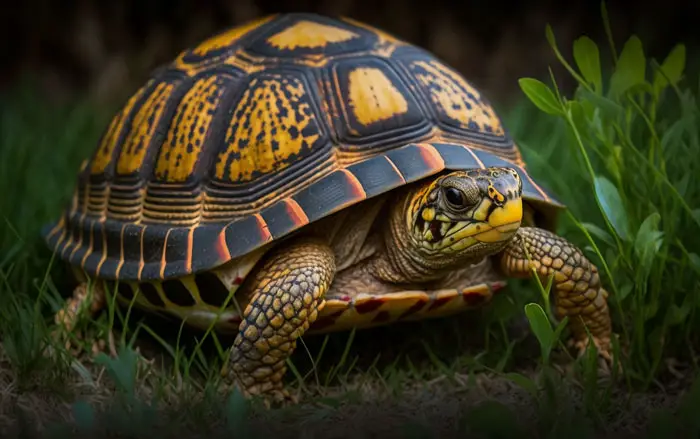
Here are some quick tips on how to care for box turtle hatchlings in your yard:
- Set up a brush pile in your yard to provide a safe habitat for your baby turtles as well as multiple hiding places from various predators.
- Adding more vegetation to your lawn can also keep away predators.
- Provide the turtles with a shallow dish of water where they can soak themselves and stay hydrated. The dish should be shallow to prevent drowning and be easily accessible for the little turtles.
- Feed the turtles with a diet high in proteins and calcium to ensure proper growth and development.
- Keep your pets indoors as dogs and cats may prey on the baby box turtles.
- Don’t use pesticides in your garden as they can harm your baby turtles as well as affect their natural diet, which is insects.
NOTE that the newly hatched baby turtles may instinctively head to the nearest water bodies. In this case, we advise you to avoid handling them and let nature take its natural cause.
Can you move box turtle eggs from your yard to a safer location?
No, we don’t advise you to move your box turtle eggs to a new spot. The turtles take their time to choose a suitable nesting site with perfect depth, temperature, moisture, and other crucial conditions for their eggs to hatch. Thus, burying the eggs in another spot may affect their survival chances.
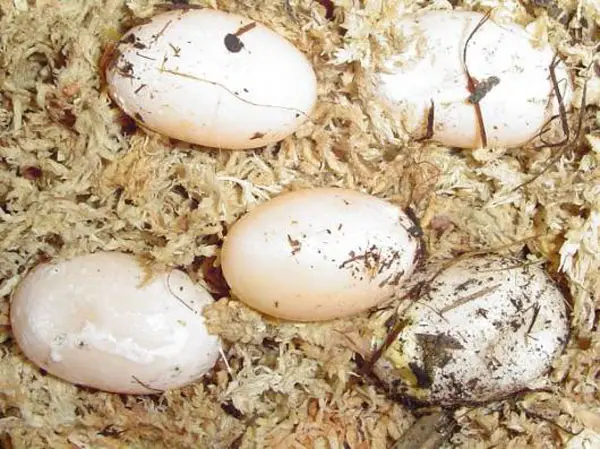
However, if your conscience tells you the eggs are not safe, then you can move them to a safer location. But be careful with the handling as these turtle eggs are quite sensitive. Disturbing them too much can affect their health and cause them not to hatch.
FAQs:
The box turtle eggs in the ground in your yard typically hatch within 3 months.
It’s hard to tell since laws vary from state to state. You may want to check with your local wildlife agency or conservation organizations on whether disturbing box turtle nests in your yard is legal.
Top predators likely to eat the box turtle eggs in your yard include raccoons, coyotes, dogs, opossums, river otters, foxes, skunks, crowns, seabirds, etc.
Conclusion
Box turtles can invade your garden and lay their eggs there. When this happens, you can call your local wildlife alert to take them from your yard. Or you can take care of them until they hatch into baby turtles. We have just discussed crucial steps you can take to protect the eggs from potential threats like predators and increase their survival chances.
We have also discussed tips for taking care of the hatchlings if you want to. However, the baby turtles may at some point make their way to the nearest water bodies. This is a natural process for them and we advise you not to stand in their way. Hope this article has solved your problem of what to do with box turtle eggs in your yard.

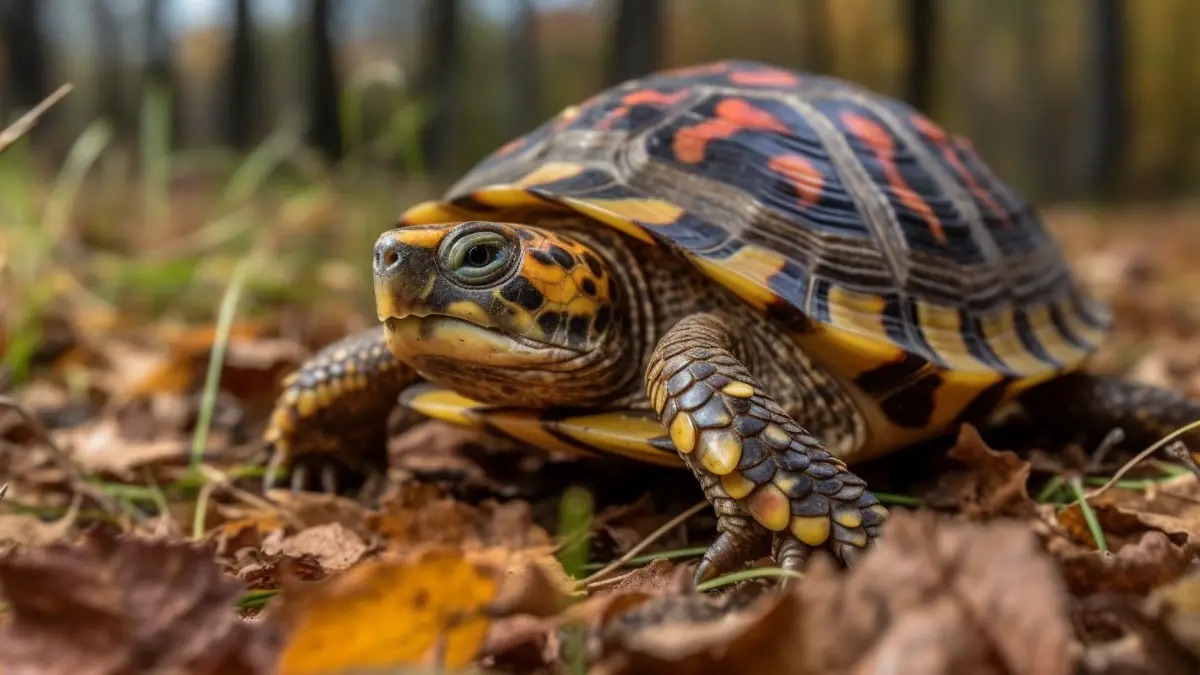
A box turtle laid eggs in my yard on May 12th of this yr. Will the hatch by or around July 12th this yr? I feel like the ground is to hard alot of clay. Will they be able to dig out